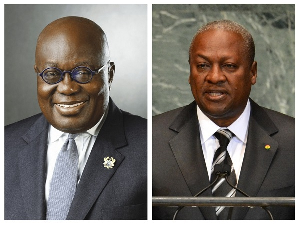As the Finance Minister, Seth Terpker, read his speech to open the Financing the Future conference held in Accra, I was so convinced of his Ministry’s commitment to fighting illicit financial flows from Ghana and Africa as a whole. My conviction was heightened by the presentation of Dr Joe Amoako-Tuffour, Senior Advisor at African Centre for Economic Transformation (ACET), who presented the conference with startling figures on illicit financial flows.
Unfortunately, Dr Tuffour’s presentation ended with no single mention of one specific incidence of the practice involving a specific company and a breakdown of figures.
With multinationals like Tullow Oil Ghana using the Channel Island of Jersey as just one way of avoiding financial transparency, and because it is almost impossible to find out any detailed accounts of its operations, one would have expected the issue of illicit financial flows to be given some level of priority.
Towards my research on illicit financial flows in Ghana with a focus on this company, my pursuit first took me to some of the most outspoken think tanks in Ghana, but none of them could be able to provide me with information on any of the extractive companies operating here. Their interest is on monitoring the Government’s take and how such revenues are used. At a forum held by one of the think tanks in Accra where I suggested that Ghanaian think tanks should add the responsibility of first making sure what was due government was received, the facilitator sarcastically replied that was a lost battle.
Following up with the Finance Ministry, there was no department allotted to tackling illicit financing. The only ‘improvised’ office was a tax policy office whose interest is tax policy reforms. I was admonished to present findings of my research for tax policy reforms but there was no interest in assisting me with the information I needed.
Seven months after officially presenting a letter to the Commissioner General of the Ghana Revenue Authority (GRA), requesting to be furnished with detailed information on some preliminary investigations I have done, I am yet to receive even an acknowledgment of receipt of my letter. With regular follow-ups at the Commissioner’s office I was told tax information on companies was confidential and not for public consumption. The Commission only writes directly to the company of a researcher’s quest for information for the company to provide the information at its own discretion.
After warmly welcoming me to his office, Chief Executive Officer of the Financial Intelligence Unit, Mr Samuel Thompson Essel, denied me of any information I needed, citing mistrust for the very institution that directed me to his office. His bizarre experience with the GRA and instances of the Authority leaking sensitive information to “criminals” means he doesn’t trust working with me.
I can still remember the chaotic nature of the archival section in the Registrar General’s Department where piles of unindexed paper files were in total disarray and where many angry people were waiting for their files. My curiosity took me to the filing rooms and I cannot be surprised that to date, only a temporary file of the company information I requested has been retrieved.
There was hope, however, at the Petroleum Commission, but that wasn’t until I gave the name of a senior contact of mine known to the Commission even after filling the information request form. That notwithstanding, the Commission maintained that certain pieces of information about companies were confidential, so this was another dead end in my investigation.
By: Elizabeth Alampae Ayamga
Email: cuteayamga@yahoo.com










